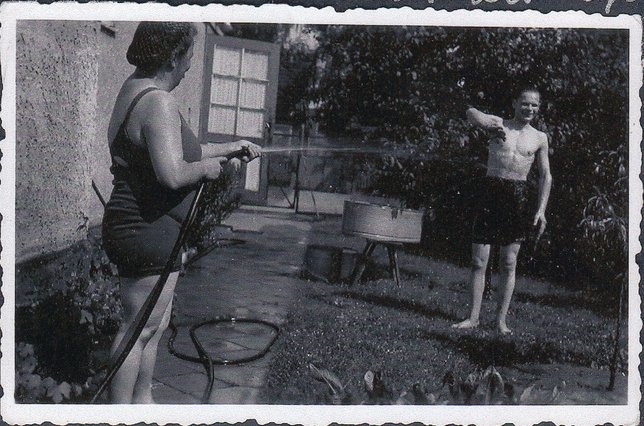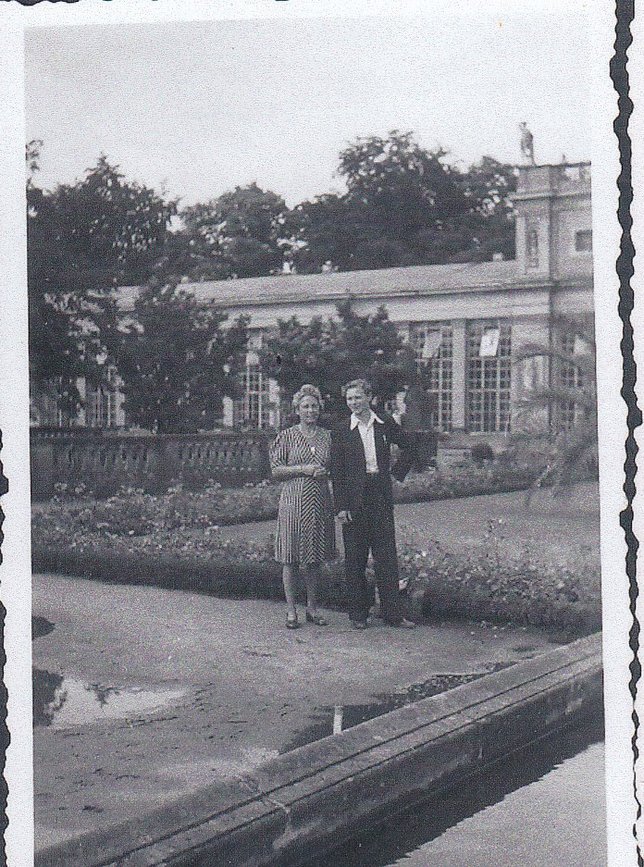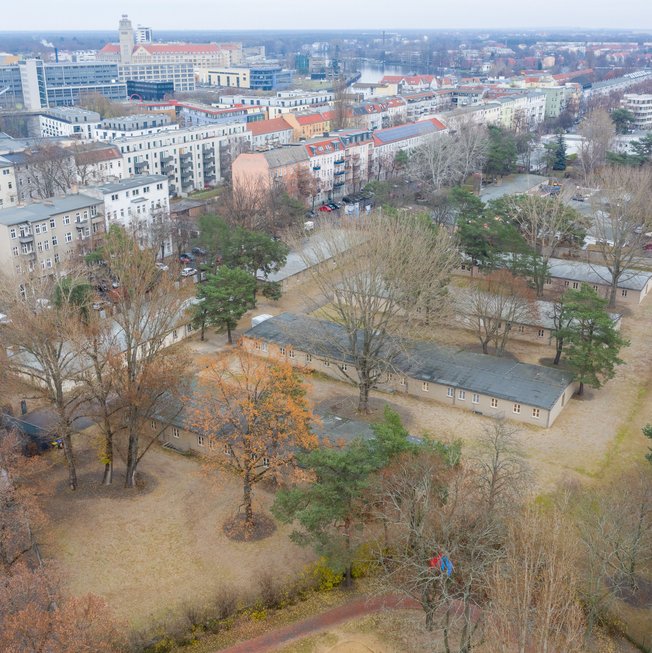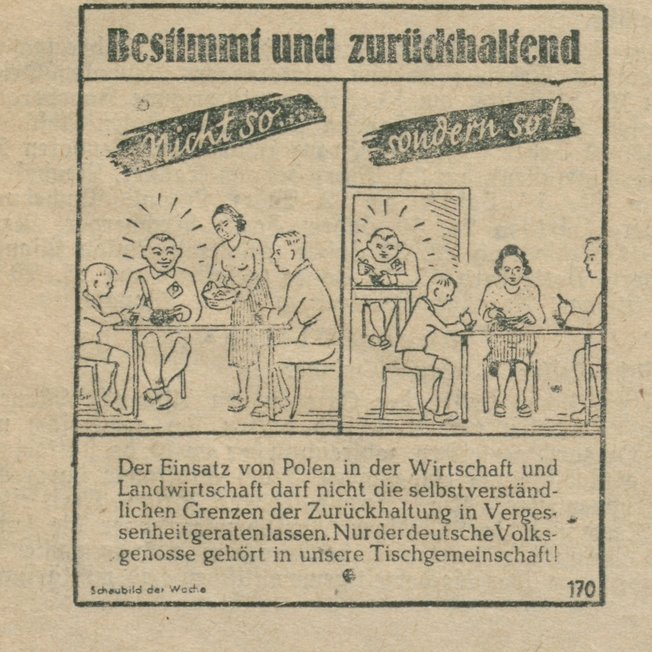Elli Köhn (1920 – 2011)
Elli Köhn was born in 1920 and lived in Neukölln, Berlin. She often visited her relatives in Niederschöneweide, where the General Building Inspector (GBI) in Britzer Straße had built a large forced labour camp, GBI Camp 75/76, in 1943. During one of her visits, Elli Köhn discovered that her sister-in-law had become friends with a young Soviet forced labourer from the nearby camp. They had met in the carpentry shop on Britzer Straße, where she used to buy her sawdust, and he was a forced labourer. She ignored the ban on contact, which made friendship between a German woman and a Russian forced labourer a punishable offense. Through her sister-in-law, Elli Köhn also came into contact with Alexander Korodelov, who soon became a friend of the family. He told Elli Köhn about his deportation: he and his uncle had been attacked by SS troops in a field near their home town of Orel and taken to Germany.
Joint leisure time
Alexander Korodelov visited Elli Köhn’s relatives very often, usually on weekends, but sometimes also during the week. He and Elli Köhn went to the cinema together and made day trips, including to Potsdam. In order not to be recognised as a Russian forced labourer, Alexander Korodelov hid the OST badge that he normally had to wear visibly on his clothing. The visit to Potsdam and other moments they spent together are recorded in Elli Köhn’s photo album.
When the Red Army conquered Berlin, the Britzer Straße camp was liberated on 23/24 April 1945. Alexander Korodelov had to report to a unit of the Soviet armed forces in Thuringia. Elli Köhn gave him the clothes of her husband, who had died in 1943, and a bicycle to help him get there.
Acts of solidarity
Decades later, in 2005, Elli Köhn spoke to a member of staff at the Documentation Centre Nazi Forced Labour about her friendship with Alexander Korodelov. Asked why, despite the threat of punishment, she and her family had befriended the young Russian and looked after him until the end of the war, Elli Köhn replied that it had been a natural act of solidarity for her. Like her first husband, who had been persecuted and arrested by the Nazis as a resistance fighter, she was a member of the Communist Party of Germany (KPD). Elli Köhn’s sister-in-law and other family members in Niederschöneweide were also associated with the Communist Party. They had come to Alexander Korodelov’s aid on humanitarian grounds, but at the same time saw their help as an act of resistance. Their only means of taking action against the Nazi system was a forbidden friendship and secretly slipping bread to Soviet forced labourers at a railway construction site at the Hermannstraße underground station.
After liberation
Elli Köhn and Alexander Korodelov met for the last time in 1946, after liberation. Elli Köhn was working at the KPD party headquarters in Berlin, where Alexander Korodelov visited her before returning to Russia. Elli Köhn’s later efforts to re-establish contact with her former friend were unsuccessful. She wrote to Alexander Korodelov and asked the mayor of Orel about him, but never received a reply.





